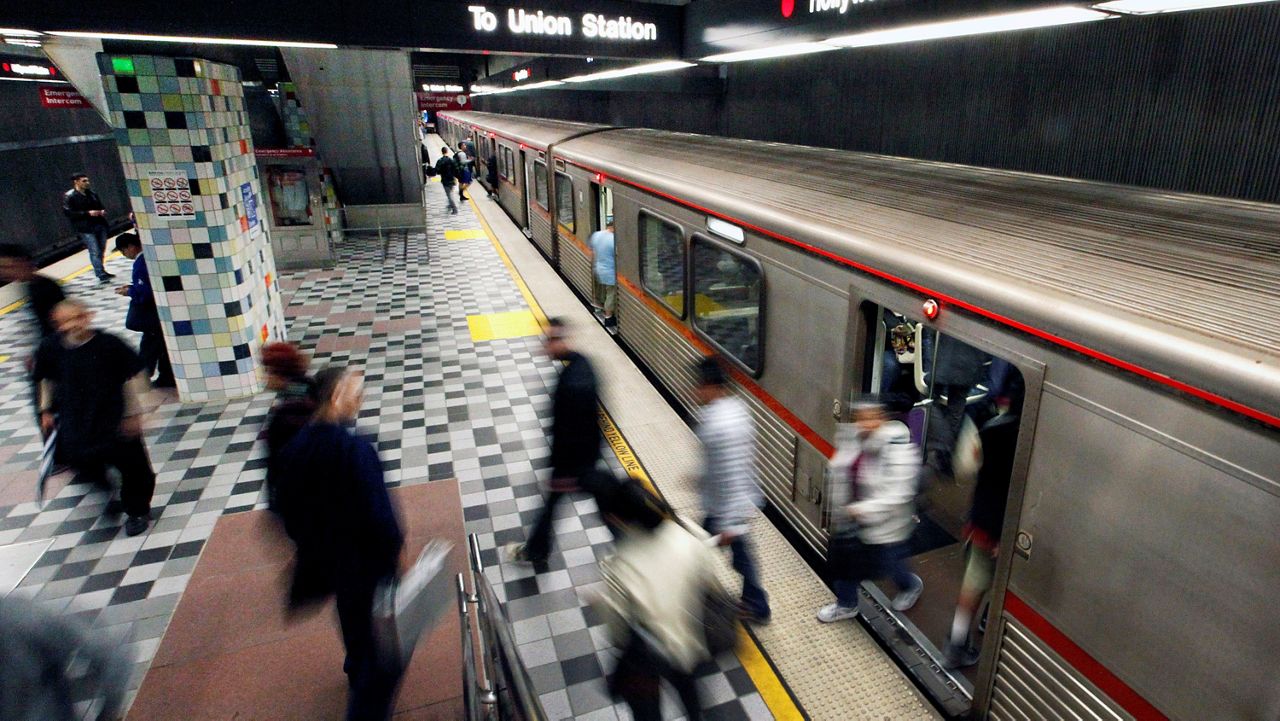LOS ANGELES — Metro's Board of Directors is expected to approve the transit agency's nearly $9 billion budget for the 2024-25 fiscal year, which represents a 4.3% reduction compared to last year's spending plan of $9.3 billion.
Metro's Board of Directors approved Thursday a nearly $9 billion budget for next fiscal year, which represents a 4.3% reduction compared to last year's spending plan of $9.3 billion.
In a unanimous vote, the Board of Directors adopted the $8.9 billion spending plan, which Metro CEO Stephanie Wiggins has said represents a "doubling down" of commitments previously made to bring riders back and provide a better transit experience.
The board approved the budget rather quickly. Board members asked questions about how the budget applies to public safety and homelessness. The budget allocates some $25 million for homeless outreach and interim beds.
Highlights of the spending plan include:
- $255.4 million for cleaning, a 14.4% or $32.1 million increase compared to the 2023-24 fiscal year;
- $354.1 million for public safety resource deployment, an 11% or $35 million increase compared to the 2023-24 fiscal year;
- $2.7 billion for transit operations for bus, rail and Metro Micro, a 11.4% or $272.4 million increase over the 2023-24 fiscal year;
- $2.2 billion for various improvements to the bus system, including increasing frequency of service, an increase of 17.5% compared to the 2023-24 fiscal year;
- $2 billion for Transit Infrastructure Development, representing a reduction of about 21% in this area compared to the 2023-24 fiscal year; and
- $2.1 billion to cities to cover costs related to transit programs and services, along with funding for toll grants and open streets programs, a .03% reduction compared to the 2023-24 fiscal year.
In the coming fiscal year, Metro is expected to complete the Airport Metro connector in the fall, connecting the C and K Lines. The budget will also support testing and pre-revenue service on the D (Purple Line) Subway Extension Phase 1 and the Foothill A Line Extension to Pomona.
In a bid to create a stronger sense of security, Metro's spending plan includes the hiring of 53 more Transit Security Officers and make permanent its Ambassador Program. In her letter, Wiggins also outlined plans to install tempered glass barriers on most if not all their buses by the end of 2024 to protect bus operators.
Metro will look to hire 165 more custodians and facilities maintenance employees, and up to 50 part-time custodians through its Room-to-Work Program, which is geared to providing unhoused riders and other individuals with jobs in Metro.
Another area of focus is addressing safety and cleanliness at specific stations, including Pershing Square, Compton, Firestone, Harbor Freeway, Lake, Norwalk and Pico. Metro made improvements at the Westlake/MacArthur Park station that led to a decrease in crime and fare evasion that officials would like to see at other stations.
"The FY25 budget listens to our customers and makes investments in the areas they want us to address the most," Wiggins said in her budget letter.
"As we look forward to hosting the FIFA World Cup, and the NBA All- Star Game in 2026, the Super Bowl in 2027, and the Olympic and Paralympic Games in 2028, each of these investments will help deliver a world-class transit system for residents and visitors to LA County that will help us be ready for those events as well as making legacy improvements that will benefit Angelenos long after all those activities are over."



